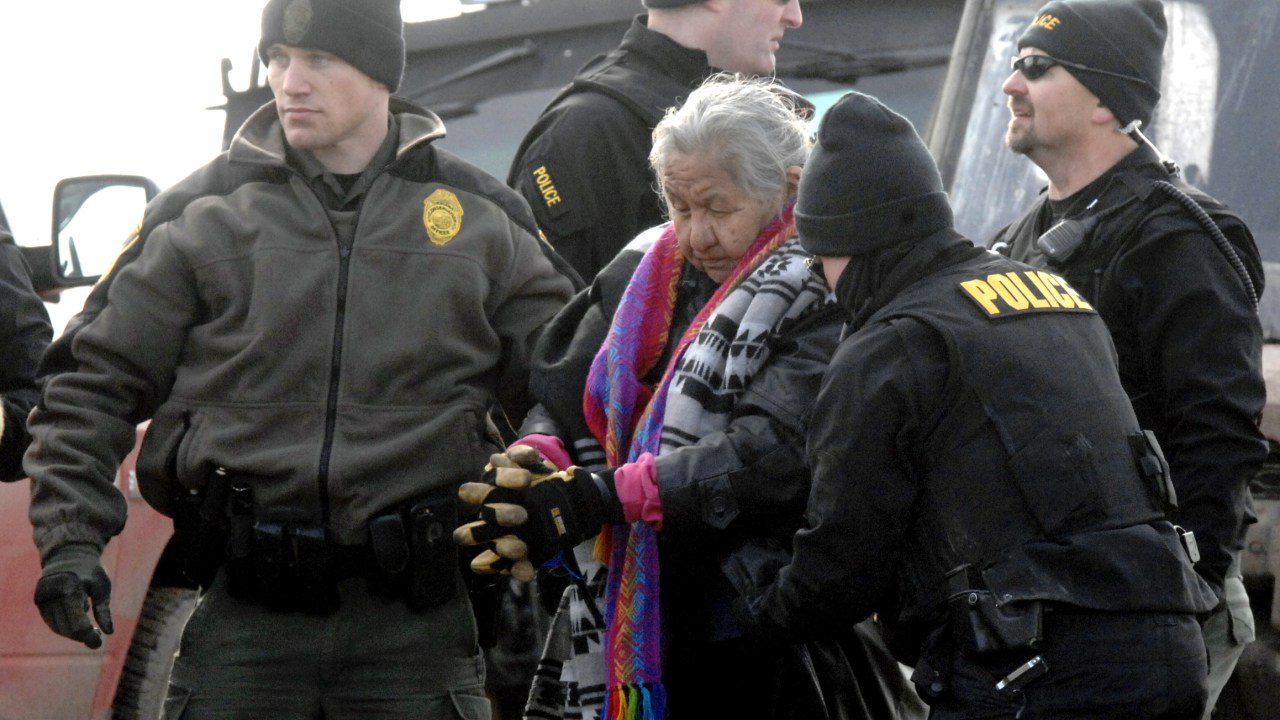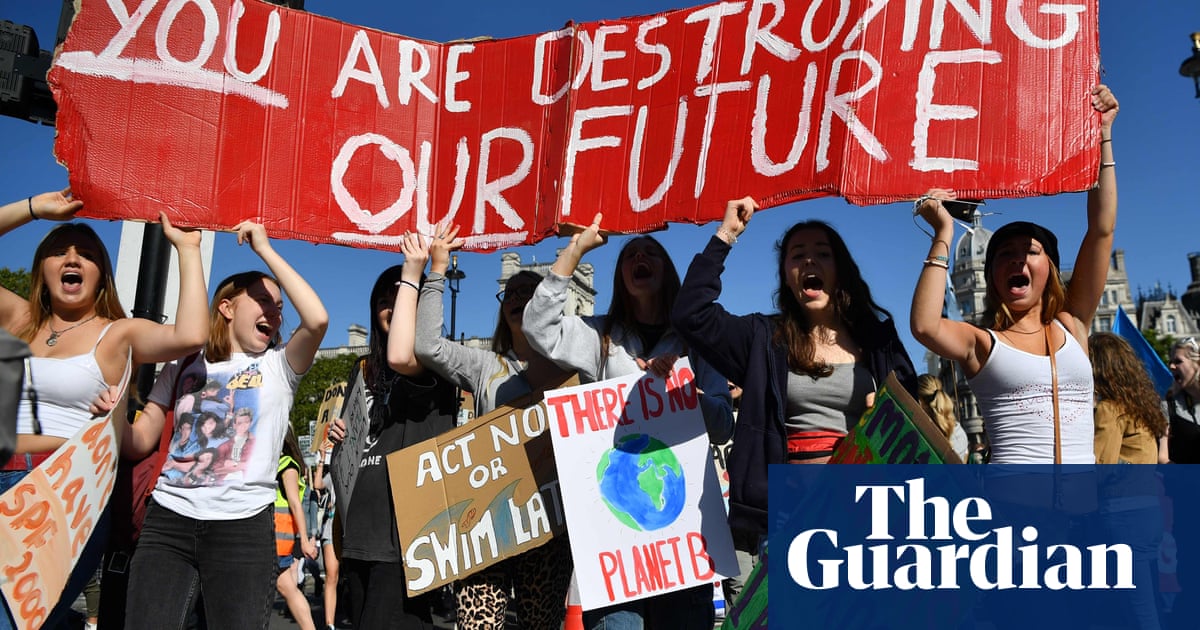
Environment Protests Being Criminalized Around the World, Say Experts
Matthew Taylor / The Guardian
(April 19, 2021) — Peaceful environmental protesters are being threatened, silenced and criminalized in countries around the world including the UK and the US, according to some of the world’s leading climate scientists and academics.
More than 400 leading experts — including 14 authors from the UN Intergovernmental Panel on Climate Change (IPCC) — say that nonviolent civil disobedience from groups like the school strikers, Extinction Rebellion and the Sunrise Movement have transformed the debate around the climate crisis in recent years.
But in an open letter published on Monday they warn governments around the world are criminalizing them at a pivotal time in the fight to tackle the escalating climate emergency.
“We know that our research alone was not enough for this recent awakening to climate breakdown as an existential crisis for humanity, and recognize that protest movements around the world have raised the alarm,” the letter states, adding: “Those who put their voices and bodies on the line to raise the alarm are being threatened and silenced by the very countries they seek to protect..”
In the UK, more than 2,000 people who took part in Extinction
Rebellion protests are being taken through the court system in what experts say is one of the biggest crackdowns on protest in British legal history. The scientists also raise concern about efforts to silence climate protests in other parts of the world from the US to France, the Philippines to India.
Dr Oscar Berglund, from the Cabot Institute for the Environment at the University of Bristol, helped coordinate the letter. He said the attempt to “criminalise climate protest” was central to the fossil fuel industry’s new strategy of delaying action on climate change.
“Now that climate change denialism is in steep decline, they have put their money behind efforts to stifle dissent. Climate scientists, who have been subject to the slander of the fossil fuel lobby for so long, recognize this change in strategy.”
The letter is signed by 429 scientists and academics from 32 countries, including leading figures such as Michael Mann and more than 70 other professors. It is also backed by three lead authors and 11 contributing authors on the UN’s IPCC reports.

The experts warn that just months before a crucial global climate conference due to be held in Glasgow later this year, it is more important than ever that these groups are able to put pressure on politicians and highlight the role polluting corporations are playing in the escalating ecological crisis.
The letter states: “It has become abundantly clear that governments don’t act on climate without pressure from civil society: threatening and silencing activists thus seems to be a new form of anti-democratic refusal to act on climate … [we] therefore urge all governments, courts and legislative bodies around the world to halt and reverse attempts to criminalize nonviolent climate protest.”
Prof. Julia Steinberger, a lead author with the IPCC who signed the letter, said governments had ignored scientists and the urgency of the climate crisis by claiming climate action was not politically popular.
She added: “Thanks to the alarm raised by climate activists, this has changed — but instead of acting, many governments are choosing to shoot the messenger, by criminalizing nonviolent protest. As scientists, we have a duty to stand with the activists who are paying attention to the science, rather than these governments, who seem to be more swayed by powerful economic interests than by the life chances of their own citizens.”
Posted in accordance with Title 17, Section 107, US Code, for noncommercial, educational purposes.
Note: This article was removed from the Guardian‘s webpage the same day it was posted. There was no explanation — only the message: “Removed: article. The article was taken down on 19 April 2021.” The version above was found posted on MSN.
Posted in accordance with Title 17, Section 107, US Code, for noncommercial, educational purposes.